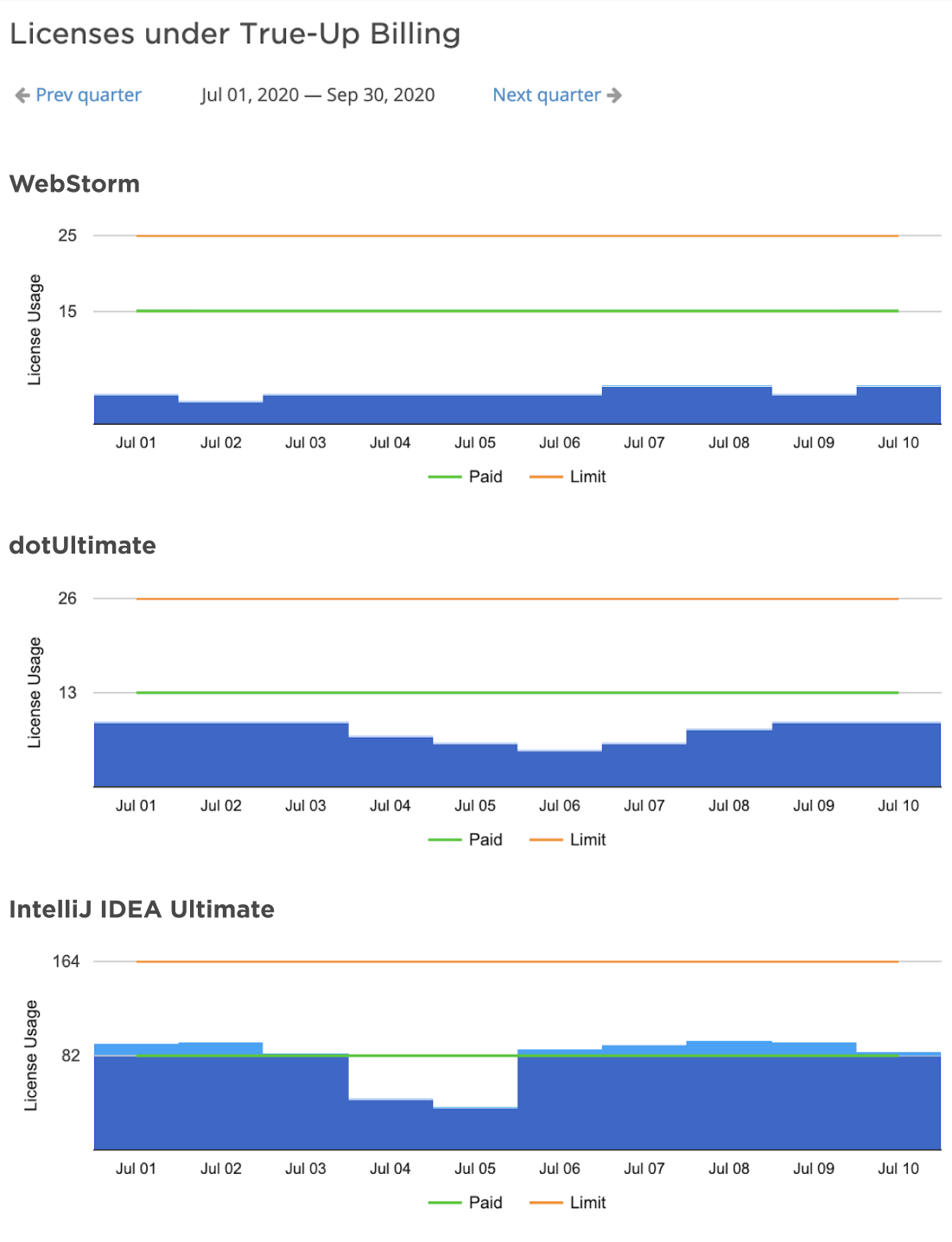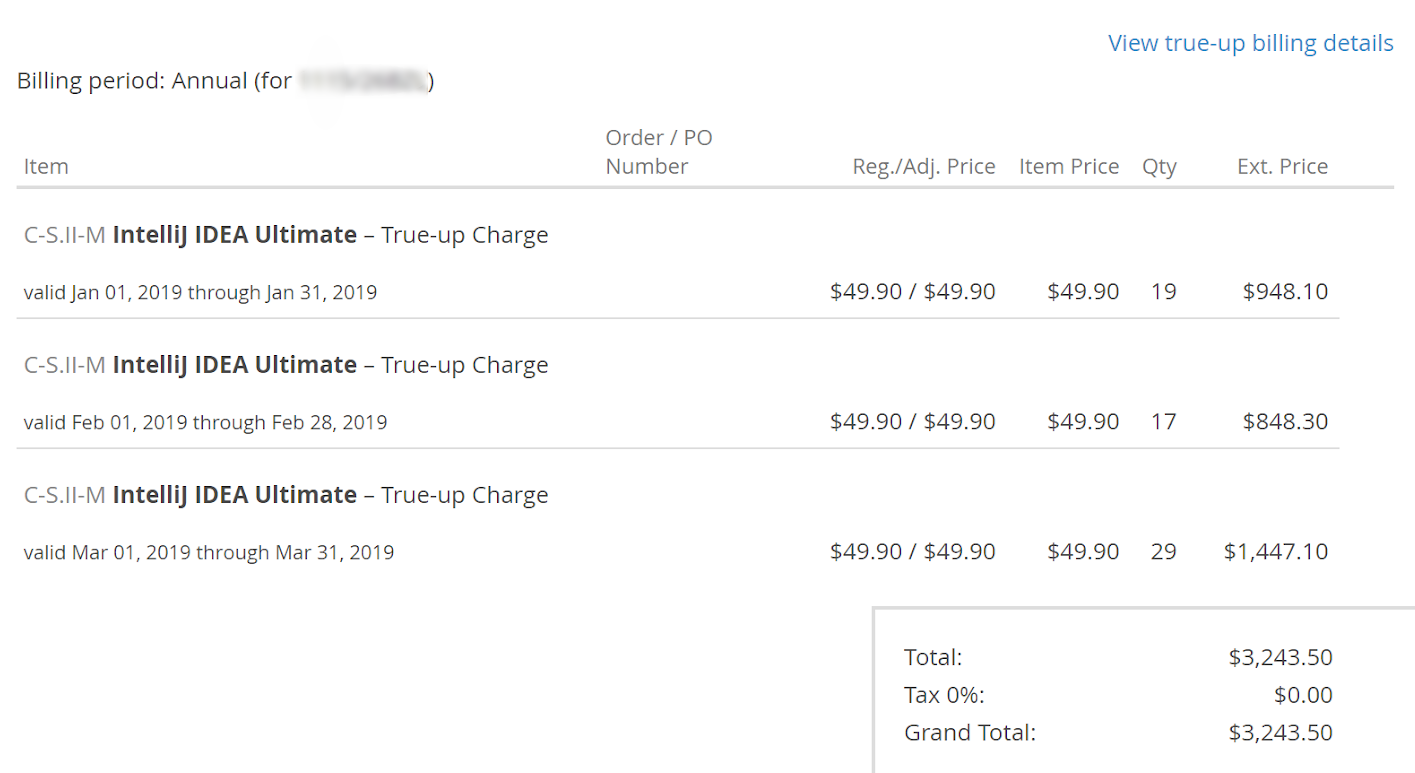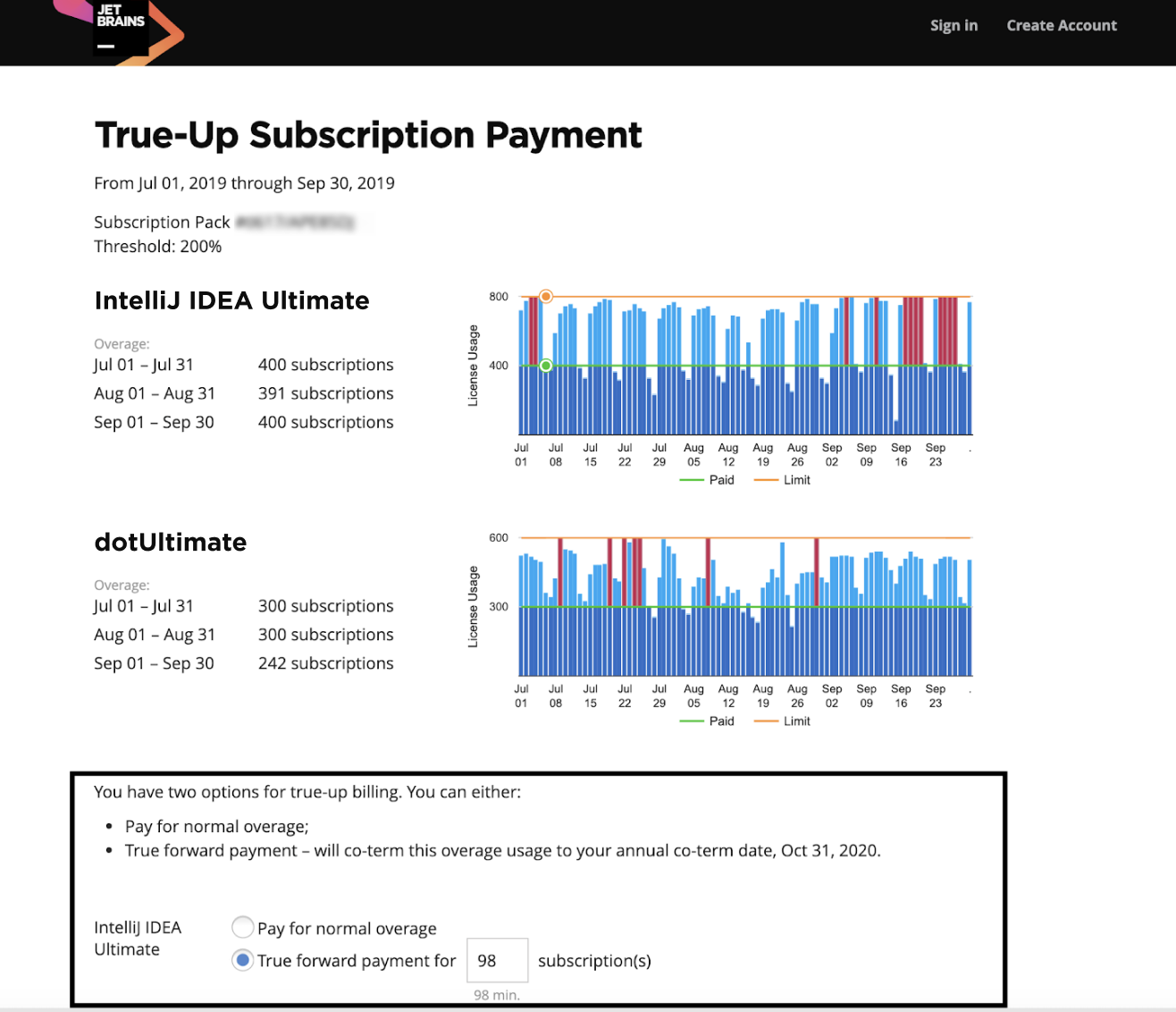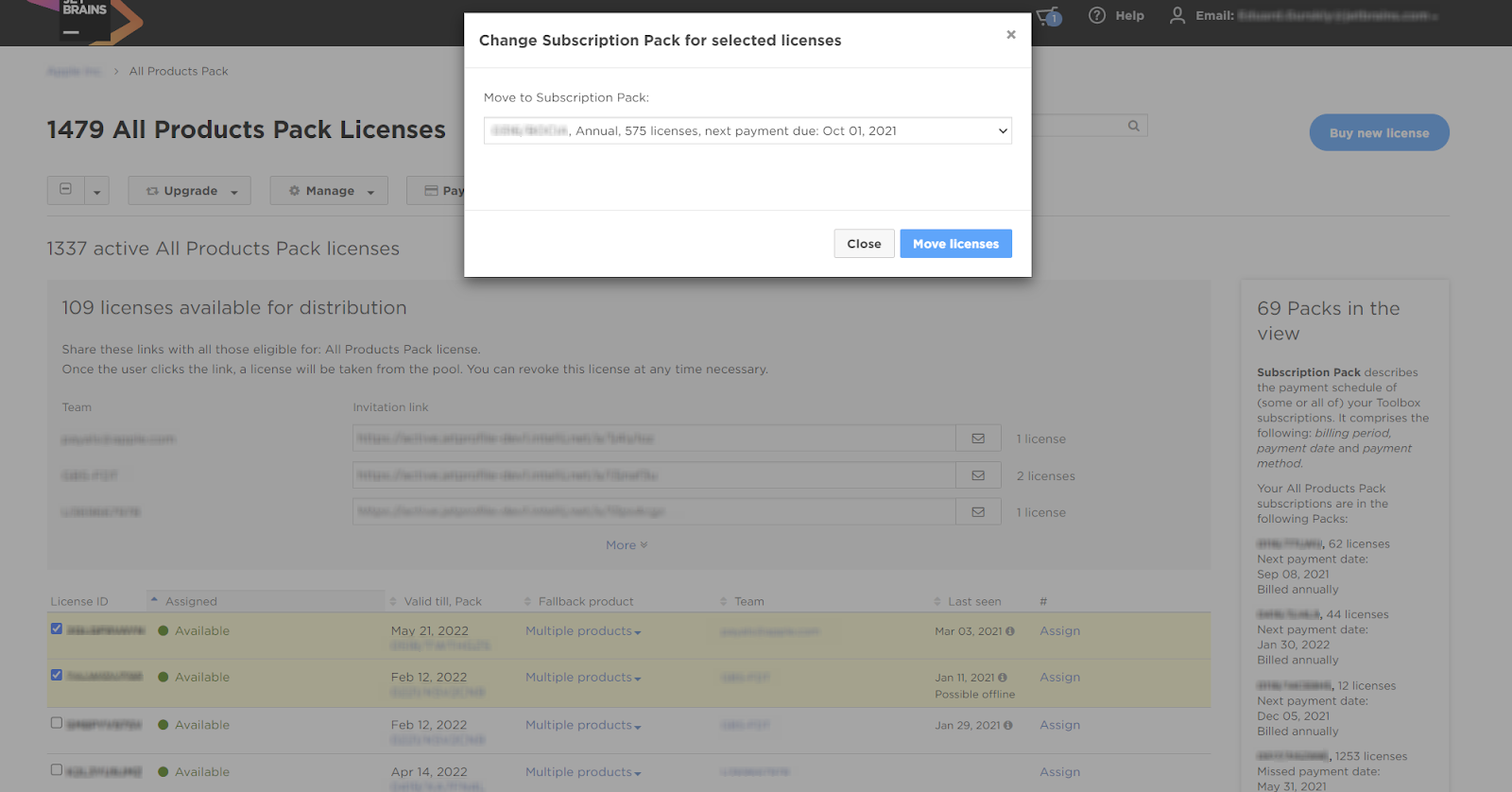True-Up Billing
The True-Up option is the ability to use more licenses than you own. It can be configured only with License Server (FLS) where licenses are in the corresponding team.
The True-Up option is designed for customers with a significant number of licenses and a growing user base to seamlessly accommodate new users on the fly, without need to initiate individual transactions for each request.
In addition to having the benefit of less purchasing overhead, the customer is ensured they are only paying for licensing that is active and in use. Temporary spikes in usage are fulfilled with smaller, overage fees, as opposed to a full annual subscription, which may or may not be in use full time.
Requirements
True-Up has some environmental requirements:
FLS set up and configured;
At least 100 annual subscriptions must be purchased and tied to a date, which is 12 months from the True-Up start date.
Configurations
True-Up configuration consists of two main parameters:
True-Up Limit — the amount of available overage. It can be a percentage like 125% or 150%. True-Up Limit spreads to all products in a subscription pack and cannot be different within one subscription pack.
True-Up Period — the time interval between the subscription invoicing. Could be monthly or quarterly. Tied to calendar period.
The number of licenses under the True-Up could be increased during the subscription period. However, you cannot remove licenses from the True-Up Billing. If you have an exceptional case, contact your sales representative.
In order to prevent any interruptions when using True-Up subscriptions there exist a grace period. Grace period for True-Up subscriptions is 1 month.
Setup
To set up True-Up for your team:
Select the IDEs that will be covered with True-Up billing.
Contact a JetBrains Sales representative directly or through this form.
Choose 1 of 2 options or their combination:
Purchase new licenses for True-Up billing.
Select existing subscription pack for True-Up billing.
Check all True-Up covered licenses:
Are valid for at least one year since the soonest start of full True-Up billing period;
Belong to one subscription pack and to one team: among products selected for True-Up billing all licenses must be in a single team and in a single subscription pack. The subscription pack can’t contain licenses from other teams, and a team can’t contain licenses from another subscription pack.
Accept True-Up Terms & Conditions.
Note that License Server doesn't distribute expired subscriptions in True-Up mode. This means that perpetual fallback licenses are unavailable.
Reports
You can get the License Usage reports in JetBrains Account. Besides the Reports from FLS for a given time frame, you can also find the reports for Licenses under the True-Up Billing. Go to JetBrains Account | Your Account | Team | <Team for license server> | Server, to find the report.

If you enabled True-Up only for some products, you have a separate report for True-Up Billing and non True-Up.
From the License Usage report, you can find out the following user information. To find more information, see Reports in FLS.
OS user name;
IP address;
Product consumed a license.
Overage invoicing
Overage invoicing procedure becomes at the end of each True-Up Period only if you overused licenses. If you used only prepaid licenses, there would be no overage invoicing.
There are Default and True Forward invoicing schemes for license overuse. At the end of the True-Up Billing Period, the customer can choose: whether to pay for overuse or add overused licenses to the main prepaid License Pool.
Default
At the end of the True-Up period the customer pays extra monthly subscription billings.
The True-Up Period is divided into calendar months. It can be divided even more if during a specific month there were changes in the number of prepaid subscriptions covered with True-Up.
In each month the maximum number of overused licenses is calculated for each covered product. The billing for each month is calculated from maximum overuse.
The final billing is formed from the sum of all monthly billings.
The following image demonstrates the example. The customer overused 19 IntelliJ IDEA Ultimate subscriptions in January, 17 — in February, and 29 — in March. So the total price is calculated from the sum of each month: (19 + 17 + 29) * $49.90.

True Forward
True Forward is one more option for invoicing. It allows transforming overuse into regular prepaid subscriptions. At the end of the billing period, you receive the statistics and can choose the True Forward option. Here’s the process:
Select the number of subscriptions to be added to the prepaid subscriptions pool.
Get invoiced for a selected number of subscriptions with their price adjusted to the co-term date.
This option can be used on a per-product basis. To cover the overage, the minimum quantity of subscriptions is limited by total number of overage days adjusted to co-term date. Maximum quantity is not limited. There's a price preview and its PDF export available.
At the end of the True-Up Period you receive the True-Up Subscription Payment report similar to the following. In this example, the True Forward option is selected and 98 subscriptions will be co-termed.

FAQ
- How can I add the existing Licenses or buy new ones to the True-Up?
You can move existing Licenses to the True-Up pool by going to Pay | Change Subscription Pack in the License list and choose one of your True-Up Subscriptions Pack.
Also, you can buy new Licenses or request a quote and then move it to the True-Up.

- How decimal point is treated when calculating a limit (the number of licenses)?
Decimal point is truncated.
- Which license is used if there are both product-specific licenses and All Products Pack licenses?
To find the Floating License assignment rules for FLS, see Floating Licenses FAQ.
For one IDE instance, a product-specific license is issued. If the same user launches another IDE and there are no more product-specific licenses available for it on the FLS, but there are All Products Pack licenses available, then All Products Pack license is issued for both IDEs. The product-specific license in this case is revoked so that someone else could use it.
True-Up licenses will be used in the last turn. As long as the FLS can satisfy the license request from the existing License Pool, it will. Rough priority is:
product specific prepaid license;
covering pack prepaid license;
True-Up overuse.